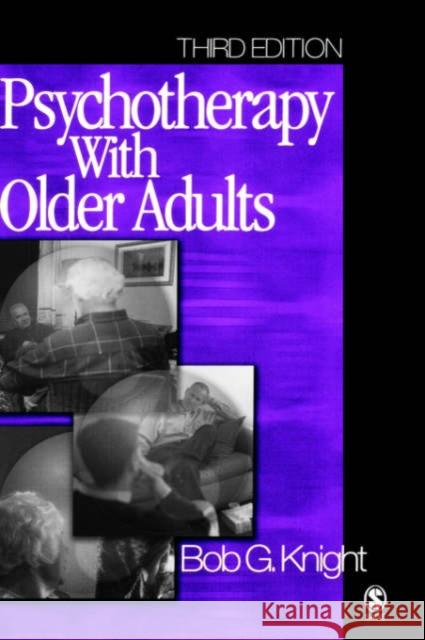Psychotherapy with Older Adults » książka
Psychotherapy with Older Adults
ISBN-13: 9780761923725 / Angielski / Twarda / 2004 / 304 str.
Psychotherapy with Older Adults
ISBN-13: 9780761923725 / Angielski / Twarda / 2004 / 304 str.
(netto: 895,58 VAT: 5%)
Najniższa cena z 30 dni: 876,51
ok. 30 dni roboczych.
Darmowa dostawa!
This Third Edition of the bestselling Psychotherapy with Older Adults continues to offer students and professionals a thorough overview of psychotherapy with older adults. Using the contextual, cohort-based, maturity, specific challenge (CCMSC) model, it draws upon findings from scientific gerontology and life-span developmental psychology to describe how psychotherapy needs to be adapted for work with older adults, as well as when it is similar to therapeutic work with younger adults. Sensitively linking both research and experience, author Bob G. Knight provides a practical account of the knowledge, technique, and skills necessary to work with older adults in a therapeutic relationship. This volume considers the essentials of gerontology as well as the nature of therapy in depth, focusing on special content areas and common themes. Psychotherapy with Older Adults includes a comprehensive discussion of assessment and options for intervention. Numerous case examples illustrate the dynamics of the therapeutic task and issues covered in therapy and stress the human element in working with older adults. A concluding chapter considers ethical questions and the future of psychotherapy with older adults. The author has updated the Third Edition to reflect new research findings and has written two entirely new chapters covering psychotherapy with persons with dementia and psychotherapy with caregivers of frail older adults. Since its initial publication in 1986, the book has been used as a course text and a professional reference around the world, including translations into French, Dutch, Chinese, and Japanese. It is a vital resource for practicing therapists and counselors who work with older adults and is also ideally suited as a text for advanced students in psychology, social work, gerontology, and nursing. Praise for Previous Editions: "Bob G. Knight's largest contribution is his excellent discussion of therapy. The book is clearly











